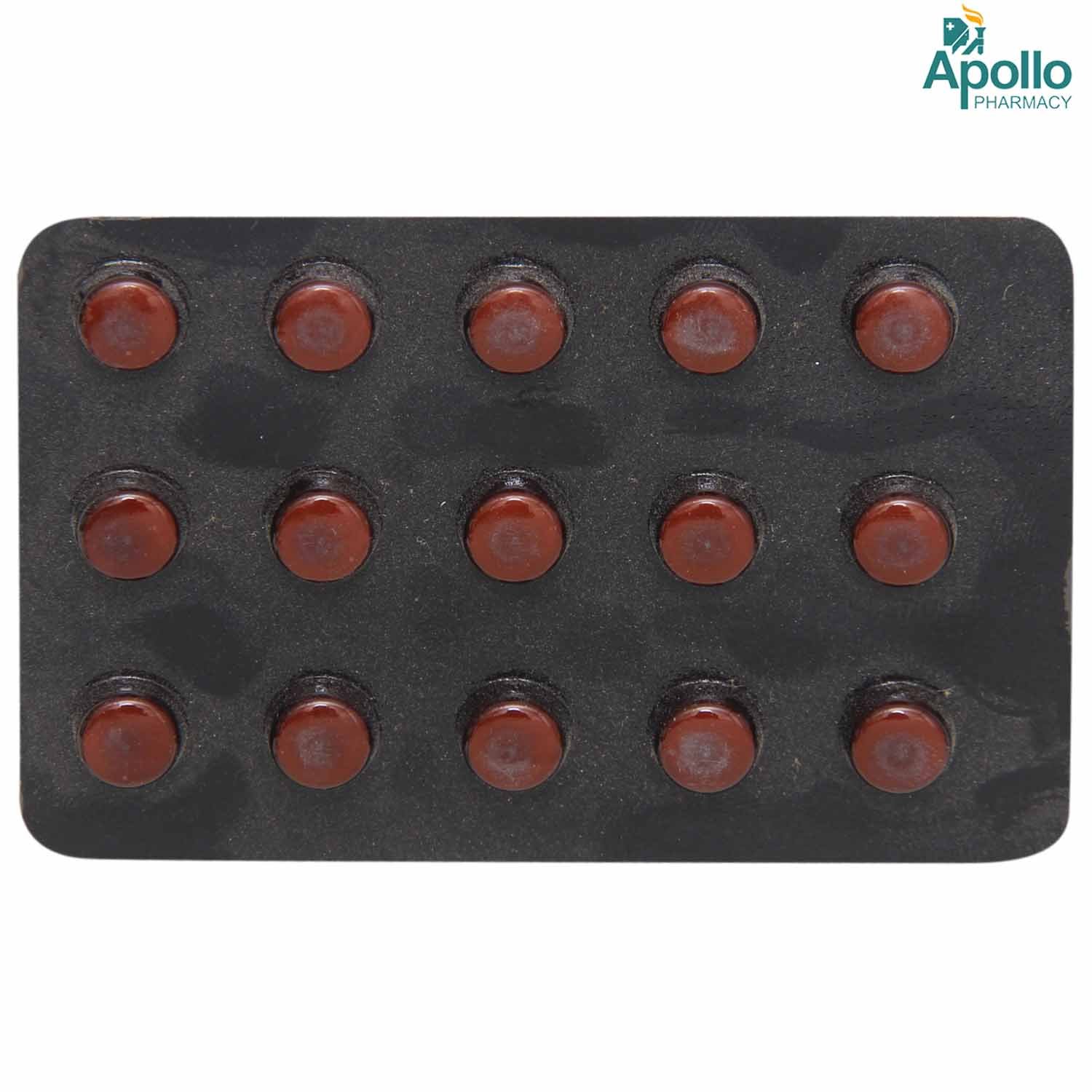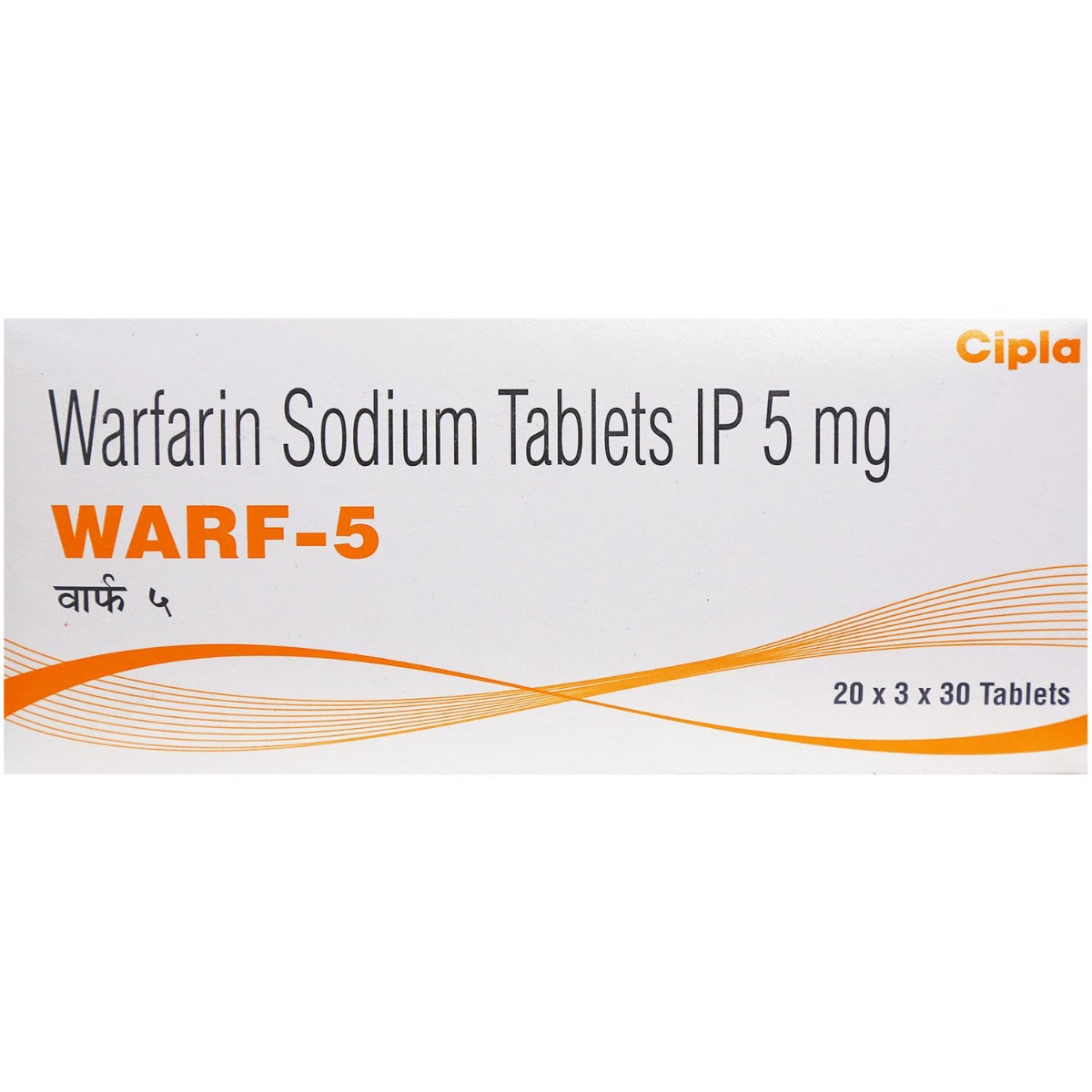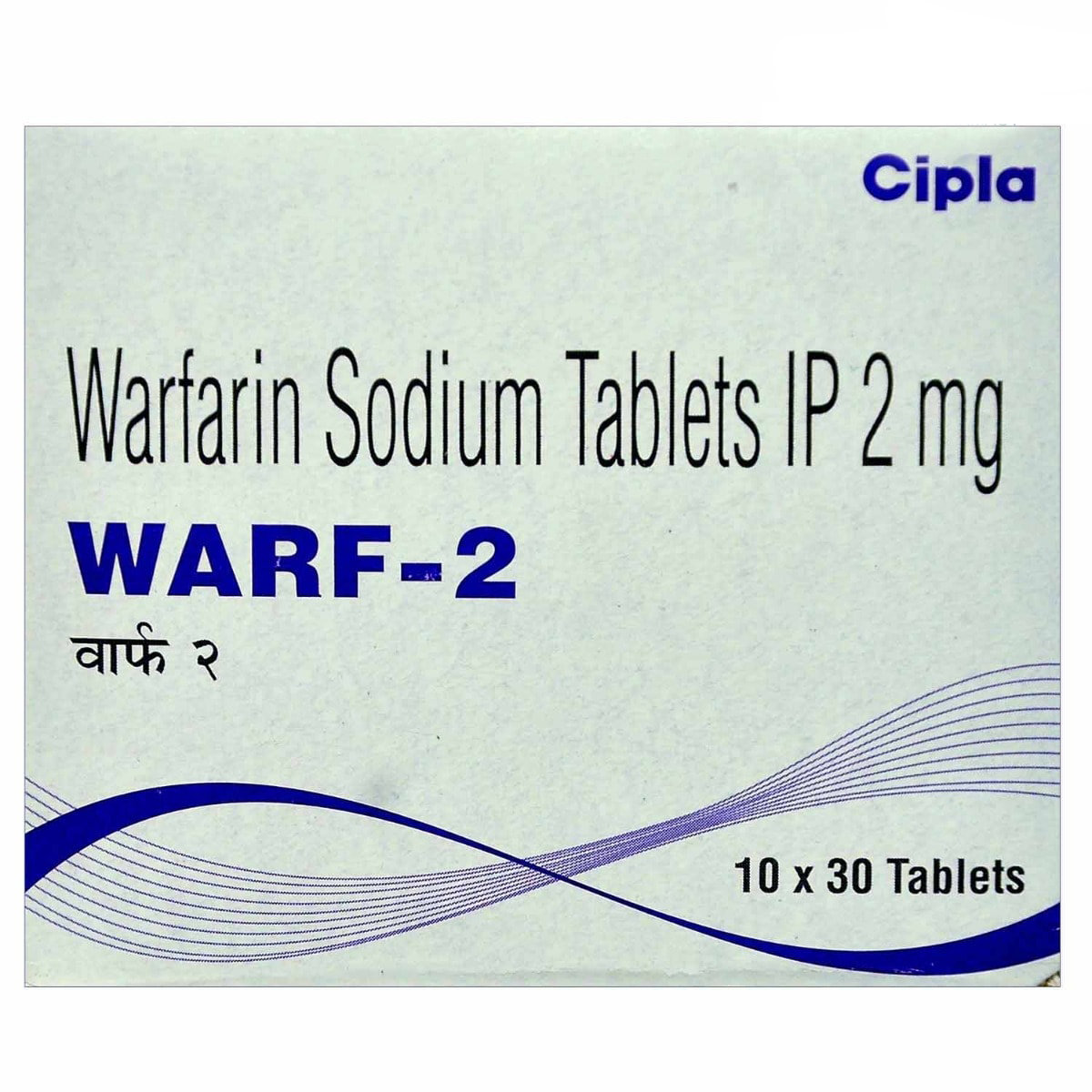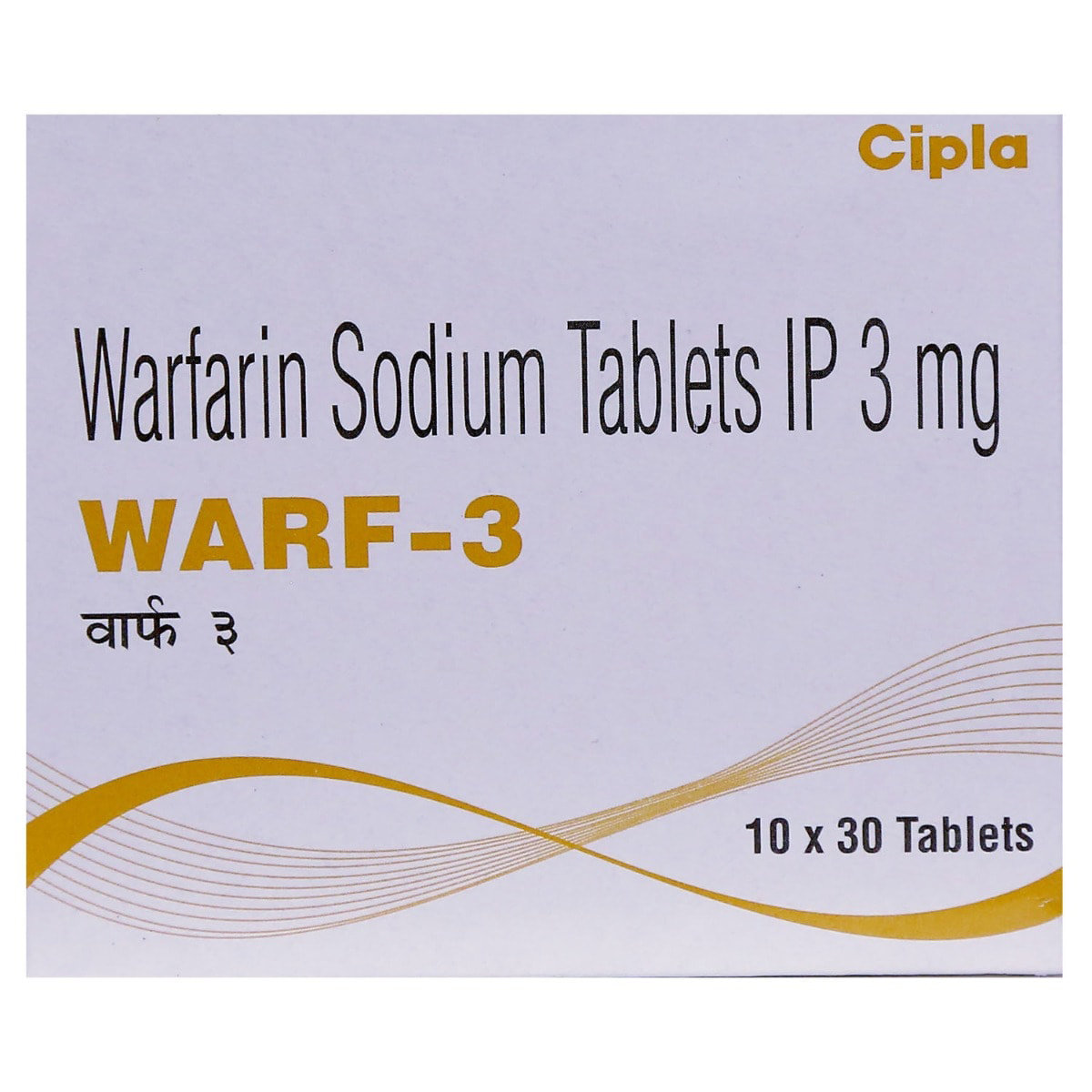Warfarin
About Warfarin
Warfarin belongs to a class of drugs known as anticoagulants (blood thinners). Warfarin is primarily used to prevent and treat deep vein thrombosis (blood clots in leg veins) and pulmonary embolism (blood clots in the lung) by reducing the formation of a blood clot. Deep vein thrombosis is a medical condition in which blood clots form in deep veins usually in the legs. Pulmonary embolism is a condition in which blood clot blocks the arteries in the lungs.
Warfarin contains Warfarin which works by inhibiting the production of clotting factors by decreasing the action of vitamin K. This prevents the conversion of fibrinogen (soluble protein) to fibrin (insoluble protein) thereby preventing blood clot formation.
Take Warfarin with or without food as advised by the doctor and swallow it as a whole with a glass of water. Do not crush, chew or break it. Your doctor will advise you on how often you take your tablets based on your medical condition. Some people may experience unusual bleeding or skin rash. Most of these side effects of Warfarin do not require medical attention and gradually resolve over time. However, if the side effects persist or worsen, please consult your doctor.
If you are known to be allergic to Warfarin or any other medicines, please tell your doctor. If you are pregnant or breastfeeding, it is advised to consult a doctor before using Warfarin. If you have a stomach ulcer, kidney or liver problems, high blood pressure, or bleeding problems, inform your doctor before taking Warfarin. It would help if you had frequent INR (International Normalized Ratio) or prothrombin time tests to measure your blood-clotting time, as Warfarin prolongs bleeding time. You must be cautious while shaving and brushing your teeth to avoid too much bleeding from the injury site.
Uses of Warfarin
Medicinal Benefits
Warfarin belongs to a class of drugs known as anticoagulants or blood thinner. Warfarin is primarily used to prevent and treat deep vein thrombosis (blood clots in leg veins) and pulmonary embolism (blood clots in the lung) by reducing the formation of a blood clot. Warfarin works by inhibiting the production of clotting factors by decreasing the action of vitamin K. This prevents the conversion of fibrinogen (soluble protein) to fibrin (insoluble protein) thereby preventing blood clots formation.
Directions for Use
Storage
Side Effects of Warfarin
- Unusual bleeding
- Skin rash
Drug Warnings
Warfarin should be used with caution in children. Prolonged use of Warfarin may cause hair loss. Regular blood tests are recommended while taking Warfarin to check the time taken for your blood to clot and the level of platelets (blood cells). If you have a painful skin rash, inform your doctor immediately as it may be due to a serious condition called calciphylaxis (accumulation of calcium in small blood vessels of skin and fat tissues) which may cause painful skin ulcers, blood clots, and serious skin infections. Patients with chronic kidney disease are at high risk of getting calciphylaxis. If you have any high blood pressure, kidney, liver, or heart problems, please inform your doctor before taking Warfarin so that the dose may be adjusted accordingly. Warfarin may cause serious side effects and death of skin tissue (skin necrosis or gangrene). Call your doctor if you have pain, color, or temperature change in any area of your body or purple toes syndrome. Before undergoing any type of surgery tell your doctor that you are taking Warfarin. Your doctor might tell you to stop taking Warfarin. Warfarin is pregnancy category D medicine and can cause birth defects, or miscarriage. So, if you are pregnant or planning for pregnancy or are a nursing mother tell your doctor that you are taking Warfarin. Warfarin should be used with caution in patients with severe Anemia (low RBC count), malignancies (any cancer), and Trauma (injuries).
Drug Interactions
Drug-Drug Interaction: Warfarin may have interaction with pain killers (aspirin, ibuprofen, phenylbutazone, feprazone, oxyphenbutazone), antidiabetic drugs (glucagon, tolbutamide, phenformin), heart-related medicines (quinidine, amiodarone, propafenone), antidepressants (nortriptyline, amitriptyline), antifungal drugs (fluconazole, miconazole, ketoconazole), antibiotics (ciprofloxacin, erythromycin, latamoxef, griseofulvin, metronidazole, norfloxacin, rifampicin, sulphonamides, aztreonam, neomycin, cephamandole, co-trimoxazole, chloramphenicol, nalidixic acid, tetracyclines), vitamin K supplements, gout medicine (allopurinol) and sedatives (ethchlorvynol, glutethimide)
Drug-Food Interaction: Warfarin may interact with cranberry juice, noni juice, grapefruit juice, pomegranate juice, and green tea. Avoid foods rich in vitamin K such as coriander, cabbage, spinach, broccoli, collard greens, kale (leaf cabbage), black liquorice, turnip greens, avocados, and brussels sprouts as they may affect the activity of Warfarin. Also, avoid alcohol intake as it may increase the risk of bleeding.
Drug-Disease Interaction: Use with caution in patients with kidney, liver, or bleeding problems, peptic ulcer, and high blood pressure.
Drug-Drug Interactions Checker List:
Safety Advice

Alcohol
unsafeYou are recommended to avoid consumption of alcohol with Warfarin as it may increase the risk of bleeding.

Pregnancy
unsafeWarfarin is a Category D pregnancy drug. It means Warfarin can cause fetal harm when administered to a pregnant woman. It should not be given in pregnant women with mechanical heart valves as they are at high risk of thromboembolism.

Breast Feeding
cautionWarfarin is not found in breast milk, but it should be used with caution if prescribed by your doctor.

Driving
safe if prescribedWarfarin usually does not affect your ability to drive or operate machinery.

Liver
cautionTake Warfarin with caution, especially if you have a history of Liver diseases/conditions. The dose may be adjusted by your doctor as required.

Kidney
cautionTake Warfarin with caution, especially if you have a history of Kidney diseases/conditions. The dose may be adjusted by your doctor as required.

Children
consult your doctorIt is unknown whether Warfarin is safe and effective in children. So, please consult a doctor if you have any concerns regarding the use of Warfarin for children.
Habit Forming
Diet & Lifestyle Advise
- Avoid making any changes in your diet without first talking to your doctor.
- Opt for foods that are high in vitamin K (liver, leafy green vegetables, or vegetable oils) as Warfarin may lower Vitamin K in your body.
- Cranberry juice, grapefruit juice, noni juice, and pomegranate juice may interact with Warfarin and lead to unwanted side effects. Hence try to avoid these juices while taking Warfarin.
- Avoid drinking alcohol as it increases risk of gastrointestinal ulcer/bleeding.
Special Advise
- You should have regular platelet count, factor V assay, fibrinogen level test, prothrombin time test (PT or PT-INR) and the INR (international normalised ratio) to analyze your blood clotting time.
Patients Concern
Disease/Condition Glossary
Deep vein thrombosis (blood clots in legs) is a medical condition in which blood clots form in deep veins usually in the legs. The symptoms include leg pain or swelling. Pulmonary embolism (blood clots in the lung) is a chronic condition that occurs as the blood clots break and travel to the lungs from deep veins in the legs or other parts of the body. The symptoms of pulmonary embolism include cough, chest pain, and shortness of breath.
FAQs
No, you are not recommended to take aspirin with Warfarin as co-administration of these two medicines may increase the risk of bleeding more easily. However, if you notice blood in urine or stools, dizziness, unusual bleeding or bruising, vomiting, weakness or headache, please consult a doctor immediately. If you are supposed to use these medicines together, you are advised to contact your doctor so that the dose may be adjusted appropriately to use safely.
It is recommended to avoid vitamin K rich foods such as coriander, red cabbage, spinach, broccoli, collard greens, kale (leaf cabbage), black liquorice, turnip greens, avocados, parsley, brussels sprouts and green tea as they may decrease the effectiveness of Warfarin. Also, avoid intake of cranberry juice, alcohol and grapefruit juice as they increase the risk of bleeding.
Yes, Warfarin may cause hair loss if the treatment is given for many months.
No, you are not recommended to stop taking Warfarin without consulting your doctor as it may worsen the condition. Therefore, take Warfarin for as long as your doctor has prescribed it.
No, you are usually not advised to have a tattoo or body piercing while taking Warfarin as it may increase the risk of bleeding and infection. If you still wish to proceed further, contact your doctor so that the dose may be adjusted or any antibiotics may be prescribed and let the piercer or tattooist know in advance that you are on treatment with a blood thinner.
Yes, you are advised to stop taking Warfarin within 24 hours of surgery or delivery as Warfarin may increase the risk of bleeding. Therefore, before having a dental procedure or any surgery, please inform your doctor that you are taking Warfarin.







